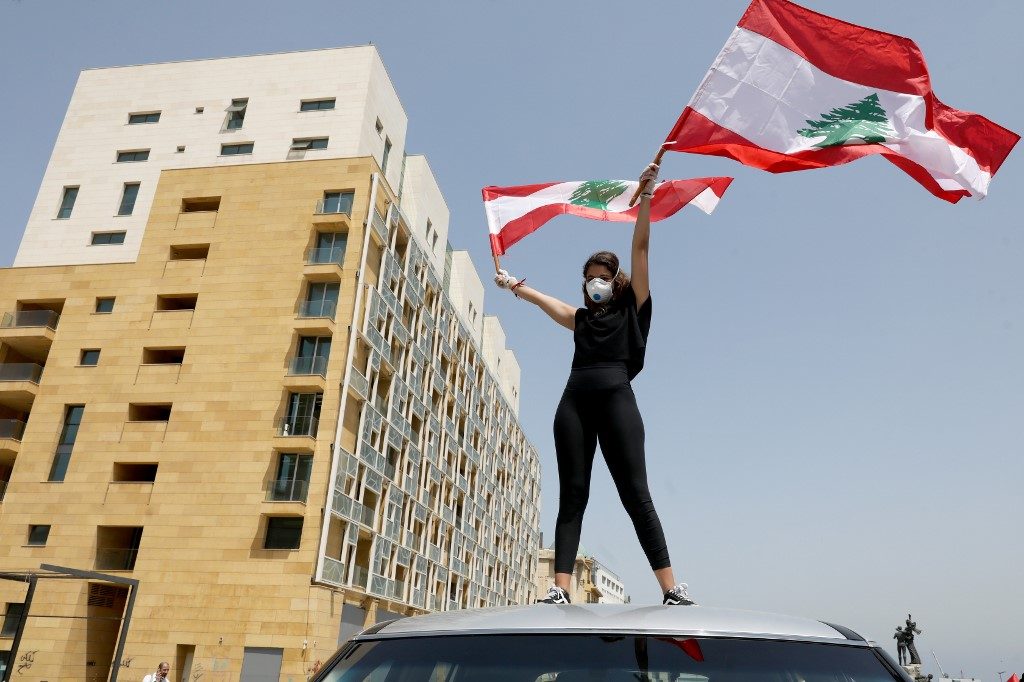SUMMARY
This is AI generated summarization, which may have errors. For context, always refer to the full article.

BEIRUT, Lebanon – Lebanon’s Prime Minister Hassan Diab pledged on Thursday, May 21, to stem devaluation and introduce subsidies on food imports, as his Cabinet marked 100 days since it was formed to salvage a free-falling economy.
Lebanon is facing its worst economic crisis since the 1975-1990 civil war, now compounded by more than two months of a coronavirus lockdown.
The local currency has lost more than half its value on the black market in recent months, from the official rate of 1,507 to more than 4,000 pounds to the dollar.
Poverty has soared to 45% of the population, and inflation is over 50%, according to official estimates.
“I have been given a promise from the governor of the central bank that the central bank will intervene in the market as of today to protect the Lebanese pound and to curb the high dollar exchange rate,” Diab said in a speech to mark 100 days since parliament approved his Cabinet.
The central bank last month ordered exchange offices to cap the rate at 3,200 to the dollar, but the pound has continued to tumble.
Lebanon on Monday, May 18, charged a top central bank official with manipulating the exchange rate, and has detained dozens of money changers in recent weeks as part of a larger crackdown on currency manipulators.
Shortly after Diab’s speech, central bank governor Riad Salameh said “necessary measures to protect the Lebanese pound” would come into effect on May 27.
The central bank “will secure dollars for the import of basic food products,” in coordination with the economy ministry as part the measures, Salameh said in a statement.
Food insecurity
The devaluation of the Lebanese pound has led to major hikes in the price of food, much of which is imported.
A liquidity crisis since the autumn has seen banks gradually restrict, then stop dollar withdrawals and transfers abroad, further complicating food imports.
Last month, Human Rights Watch warned more than half of Lebanon’s population may not be able to afford food and basic necessities due to a coronavirus lockdown unless the government provides urgent assistance.
Diab promised action to alleviate the effects of inflation on the economy.
“The import of basic food commodities will be subsidized according to fixed schedules,” he said. “There will be a daily follow-up to reduce food prices and Lebanese people will soon be witnessing a decrease in relevant commodity prices.”
Parliament approved Diab’s new government on February 11 after a months-long protest movement unseated his predecessor.
Since last October, massive street protests have ignored Lebanon’s sectarian and political divides to demand an overhaul of a political class criticized as inefficient and corrupt.
Diab acknowledged outstanding challenges in areas including electricity and health care, but offered “glimmers of hope.”
He spoke as power cuts have increased in recent days, with the national electricity company putting the blame on increased demand due to a heat wave.
Protesters staged a sit-in at the energy ministry on Thursday, the National News Agency said.
Lebanon, one of the world’s most indebted countries with a debt equivalent to more than 170% of its gross domestic product, defaulted for the first time in March.
Diab’s government has approved an economic recovery plan, and last week entered talks to obtain $9 billion in aid, on top of another $11 billion in grants and loans already pledged by international donors in 2018. – Rappler.com
Add a comment
How does this make you feel?
There are no comments yet. Add your comment to start the conversation.